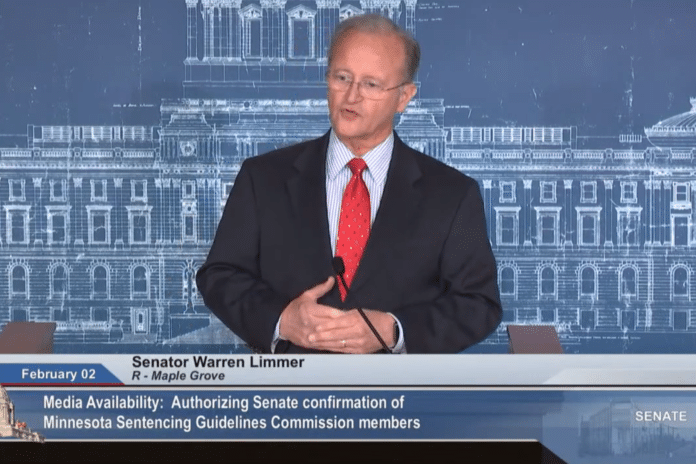
Republicans in the Minnesota Legislature have introduced legislation that would bring greater oversight to the state’s Sentencing Guidelines Commission.
The Minnesota Sentencing Guidelines Commission (MSGC) bills itself as an “ongoing policy-making body created to develop and maintain a model for rational and consistent sentencing standards that promote public safety and reduce disparity in sentencing practices throughout the state.” The MSGC also writes the sentencing grid that judges use to determine sentences.
But some lawmakers believe it lacks proper oversight and has an outsized role over the sentencing of Minnesota criminals — and that’s where SF 2672 and its House companion HF 2962 come into play.
The proposed legislation would amend the Minnesota Statutes to require Senate confirmation of most people appointed to the commission.
“The appointments of members … are to be made with the advice and consent of the senate,” the bill reads, adding that each commission member shall continue to serve until a successor is appointed “and, if applicable, confirmed by the senate.”
The governor appoints seven of the MSGC’s 11 members: one public defender, one county attorney, one peace officer, one probation or parole officer, and three members of the public, one of whom must be the victim of a felony crime.
As for the other three members of the MSGC, they are the chief justice of the Minnesota Supreme Court (or a designee), an appeals court judge, and a district court judge. These latter two positions are appointed by the chief justice.
Sen. Warren Limmer, a Republican who chairs the Judiciary and Public Safety Committee, released a statement calling out the MSGC for working to become a “de facto legislature.”
“We have a commission with members who are moving towards acting as a de facto legislature. When the majority of the board is appointed by the governor, there is not true accountability to the people of Minnesota,” he said.
“My concern is this Commission and its members have increasingly been more interested in writing public safety policy, mainly, reducing penalties and probation for criminals. It’s alarming because the commission was never intended to make wholesale changes to policy,” he added.
SF 2672 and its House companion were introduced and referred to their respective public safety committees on Monday. On Wednesday the Senate Judiciary and Public Safety Committee voted to advance the bill on to the State Government Committee. Every single Senate Republican voted in favor, while every single Democrat voted against.













